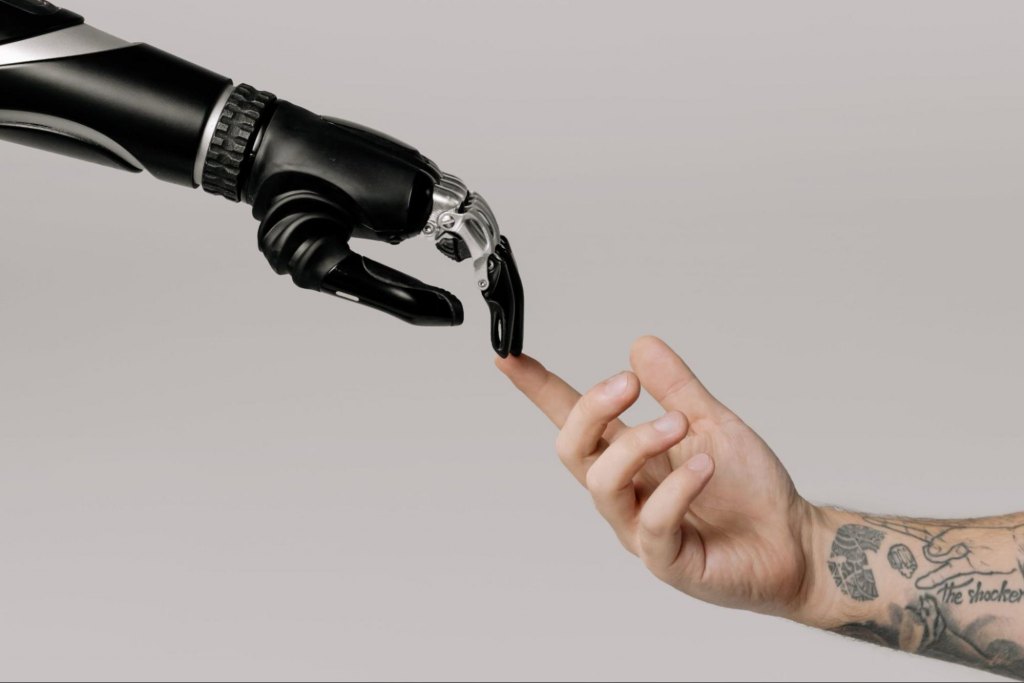The world of project management is constantly evolving, and with many recent advancements across the technology sector, the future looks promising for business owners and project managers. Right now, the question on everyone’s minds is, “How will artificial intelligence and automation shape the way we manage projects in the coming years?”
By streamlining processes and improving efficiency, artificial intelligence (AI) and automation have already made significant impacts across various industries and jobs. Out of all the roles that benefit from these transformative technologies, project managers and small business owners stand to gain the most significant advantages from these technological advancements.
Within the project management space, we can predict that the role of AI and automation will become even more pronounced in 2024 and into the foreseeable future. From intelligent project-tracking systems to automated decision-making, these tools have the potential to revolutionize how projects are planned, executed, and monitored. This article will examine the potential benefits and challenges associated with integrating AI and automation into project management practices, and we will also offer insights into how professionals can adapt and thrive in the evolving landscape of technology-driven project management.

1. Task Automation and Efficiency
One of the key benefits of using AI and automation systems is how these solutions can significantly streamline routine tasks, which can be invaluable for project managers. For example, instead of manually inputting tons of data points and information into your project management tool, CRM system, or content marketing plan, you should consider automating the data entry process to save yourself time, energy, and effort. AI algorithms can quickly and accurately grab info from different sources and categorize the information in a meaningful way, reducing the chance of human errors.
In addition, think about how tedious and overwhelming it can feel to handle invoices and set up appointments with vendors, clients, and other parties. These types of tasks can be delegated to and automated by AI systems, which can make the whole project management process a whole lot smoother and free up your team to focus more on the most important responsibilities for your project.
2. Cognitive Support for Decision-Making
AI’s analytical capabilities can be a game-changer for data analysis and decision-making, especially when it comes to project management. AI algorithms can swiftly process extensive datasets to reveal vital patterns and insights that are essential for the success of many projects. For instance, if you’re managing a construction project, you can feed an AI algorithm data from past similar construction projects and the system can then uncover trends that can improve your timetables, resource conservation, and more.
This implementation of AI allows your business to adapt to market dynamics, identify emerging trends, and make informed decisions throughout the project lifecycle.
3. Optimizing the Supply Chain
In various industries like fashion, healthcare, and manufacturing, many projects are dependent upon long (and often slow) supply chains. To improve project timelines and maximize profitability, you need to optimize your supply chains to cut out the fat and bottlenecks in the process. Through the implementation of unique AI solutions, you can conduct demand forecasting and predictive analytics, which can then facilitate precise planning and inventory management.
Of course, this is easier said than done, and a great deal of data is needed to identify opportunities for improvement in your supply chain. That said, the integration of cutting-edge technologies like Radio Frequency Identification (RFID) and the Internet of Things (IoT) tangentially with your AI solutions can enhance transparency, efficiency, and data collection and analysis, thus streamlining logistics and minimizing lead times. This high degree of supply chain optimization serves as the cornerstone for ensuring timely project delivery and success across diverse sectors.
4. Enhancing Cybersecurity and Mitigating Risks
The role of AI in cybersecurity has become increasingly important, and many types of projects like those in the healthcare space often deal with a lot of sensitive data. While most cybersecurity threats can be deterred by following best practices from your IT department, there can still be some cybersecurity risks for project managers.
Fortunately, there are many AI tools out there that you can implement for threat detection and response processes that include real-time monitoring and reliable incident resolutions. These tools can take a proactive approach to identifying and addressing hazards, thus diminishing the probability of successful cyber attacks and safeguarding critical project data.
5. Customization and Innovation in Project Delivery
Many AI solutions have an advanced capability to analyze customer feedback and market trends at rapid rates, which provides a unique advantage in project management settings. For instance, if you’re a project manager overseeing the launch campaign of a new product, you can automate the process of gathering feedback from customers and implement AI tools to analyze that feedback in real time. Those rapid analytics can then allow you to pinpoint shortcomings in your current product and identify audience segments that may be better markets for your product.
When businesses personalize their services or products based on what customers like/dislike and identify the gaps in the current marketing strategy, they can become more creative in how they approach their projects and how they can adapt them to rapidly changing environments, making sure they stay ahead of the competition.
6. Embrace Future Trends to Improve Future Projects
We’ve only begun to scratch the surface of AI’s capabilities, and there are plenty of processes that will undoubtedly become automated within the next few years, including many administrative tasks. By integrating more AI resources into your project management practices today, you will open the door to a future characterized by increased efficiency, informed decision-making, and innovative solutions.
The ongoing evolution of AI technologies promises continued optimization of processes, ensuring successful project outcomes and driving broader business innovation. The future of project management is intricately linked with the transformative capabilities of AI, shaping an environment where adaptability and efficiency become the cornerstones of success. Don’t miss the boat and kick yourself over it later; embrace the future by integrating AI and automation into your project management processes today.
7. The Human-AI Collaboration Paradigm
In the future of project management, a key subtopic that deserves attention is the Human-AI Collaboration Paradigm. As artificial intelligence and automation continue to advance and evolve, many industries and specializations are bound to undergo significant transformations as well, including project management spaces. However, it is important to recognize that human intervention and expertise will continue to play a role in the success of projects for many years to come. Human supervision is still critical because AI still makes decisions based on the data available to it and it is entirely logic-based, which means these technologies cannot yet think critically enough to make difficult decisions that consider every factor, even those beyond quantitative data sets.
AI and automation are still limited by their inability to replicate the intuitive decision-making and creativity of the human brain. This is where the Human-AI Collaboration Paradigm comes into play. Instead of viewing AI as a replacement for project leaders and team members, it should be seen as a valuable tool that empowers and enhances their abilities.
For example, AI resources can support project managers by assisting in the creation and optimization of project plans. AI algorithms can analyze large amounts of data, identify patterns, and make predictions within minutes to help project leaders develop more accurate and efficient plans. However, your AI solution won’t see everything and definitely won’t understand the “big picture.” Project leaders should use AI to develop the initial plans, but then must provide their own expertise and judgment in validating and refining these plans, ensuring they align with the organization’s strategic objectives.
In addition, AI can collect and analyze real-time data, but it is often powerless to do anything after the findings and conclusions. Instead, that information is provided to project leaders with timely insights into potential risks and issues, which allows for proactive human intervention and informed decision-making, mitigating potential problems before they escalate. No matter how many times AI pours over the data, it is ultimately the project leader’s responsibility to interpret and contextualize the analyzed insights and apply their experience and knowledge to guide the project toward success.
Final Words
Clearly, project managers who strategically embrace AI and automation as essential tools/resources have a competitive edge in the industry. However, while automating routine tasks, remember to keep in mind that AI doesn’t replace you or your team; it’s a tool that helps free up resources for higher-level tasks or other responsibilities like strategic planning.
This relationship between project managers and AI is a catalyst for elevated efficiency and innovation. As we navigate the complexities of project management, those who seamlessly integrate these technologies will optimize processes and propel their organizations toward success and resilience. So, what are you waiting for?






















Leave a comment!